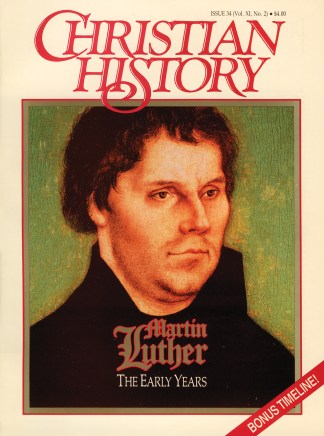Frederick III “The Wise” (1463–1525)
Pious medieval prince
Frederick III, Elector of Saxony, was both an avid collector of relics and a supporter of modern scholarship.
He was educated at an Augustinian monastery and made a pilgrimage to the Holy Land. He collected religious relics—19,013 of them, in fact, by the year 1520—with the wish that Wittenberg, as a depository of sacred items, would become the Rome of Germany. He had such rarities (it was claimed) as four hairs from the Virgin Mary, a strand of Jesus’ beard, and a piece of the bread eaten at the Last Supper.
The pious Frederick also founded the University of Wittenberg. After inviting Luther (and later Melanchthon) to teach there, he found himself having to protect the troublesome professor of Bible.
When in 1518 Luther was summoned to Rome for a hearing, Frederick intervened and arranged for the meeting to take place on safer German soil. He also refused to execute the 1520 bull, Exsurge Domine, which condemned Luther. And after the Diet of Worms placed the reformer under an imperial ban, Frederick found him a hiding place at his castle, the Wartburg.
The Saxon ruler’s reputation for justice earned him the title “the Wise,” but his cautious nature earned him the nickname “the hesitater” from Luther. Scholars have debated how much Frederick accepted of Luther’s doctrine; his chaplain and secretary, Georg Spalatin, made him familiar with Lutheran teaching, but Frederick never openly advocated reform. Nevertheless, he refused to suppress Luther, and in 1524 he ended the veneration of relics in Saxony (though he did protest the iconoclasm of Luther’s followers).
Perhaps the best clue to Frederick’s final position came when he lay on his deathbed in 1525. The prince asked to receive the Lord’s Supper in both bread and wine—contrary to papal doctrine but in keeping with Luther’s teaching. Luther preached at his funeral, and Melanchthon praised him as the prince who had done more than any other to advance the Reformation.
Georg Spalatin (1484–1545)
Go-between and confidant
When the disturbing political implications of Luther’s teaching grew clear, he needed a friend in high places. That friend appeared in the person of Georg Spalatin, the chaplain and secretary of Elector Frederick of Saxony.
Spalatin began studying at Wittenberg in 1511 and was soon brought under Luther’s influence. When the pope summoned Luther to Rome for a hearing in 1518, Luther asked Frederick to move the meeting to Germany, and Spalatin became the middle man in the negotiations. He also accompanied Frederick to the Diets of Augsburg and Worms to help negotiate with Luther’s opponents.
Spalatin supervised the publication of many of Luther’s works and became a trusted friend. In 400 letters to Spalatin, Luther shared everything from the deeply personal and intimate (e.g., how Spalatin should make love to his bride!) to the mundane—“I have planted a garden and built a wall, both with marvelous success.”
Paul Thigpen, a professional writer, is a doctoral candidate at Emory University in Atlanta, Georgia.
Copyright © 1992 by the author or Christianity Today/Christian History magazine.Click here for reprint information on Christian History.










